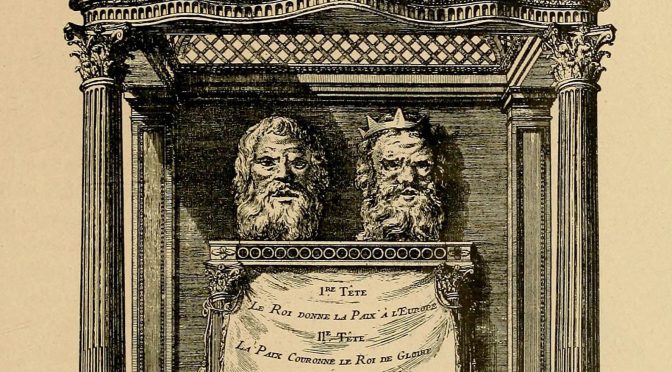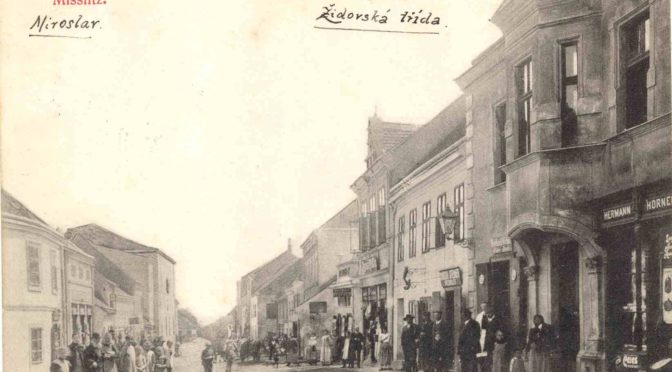
Mátyás Erdélyi is a post-doctoral fellow at CEFRES, cofinanced by Charles University
Title of his contribution: « Bank and Insurance Clerks in Budapest, Prague, and Vienna (1848-1918) »
Conference: Borders
Organised by István Hajnal, Circle – Hungarian Social History Association
Where: University of Pécs (Hungary)
When: 27-29 August 2020 (the contribution scheduled for 29 August)
Eleventh session of IMS / CEFRES epistemological seminar of this semester led by:
Felipe K. Fernandes (EHESS / CEFRES)
Topic: Markets (Re-)observed
Where: The session will be conducted over a videoconferencing platform. Registration: adela.landova@cefres.cz
When: Wednesday 13 May 2020, from 4:30 pm to 6 pm
Language: English
Text to be read:
- Clifford Geertz: “Suq: The bazaar economy in Sefrou” in: (C. Geertz, H. Geertz, L. Rosen, Eds) Meaning and Order in Moroccan Society, Cambridge [et al.], Cambridge University Press, 1979, p. 123-175

A lecture by Sabine Arnaud (Centre Alexandre Koyré, EHESS)
Date: Wednesday 3 May, 6:30-8 pm
Venue: French Institute in Prague, 5th floor, Štěpánská 35, Prague 1
Language: English
Abstract
The fascination for the invention of a speaking machine lay at the intersection of two important topics for the eighteenth century: articulation as a sign of civilization, and the polemic of man as machine. As the teaching of speech for so-called “deaf and mute” pupils developed, some saw the machine as that which would complete the work of nature and provide mankind with new means of communication. Others went so far as to present the machine as a model that could teach articulation and the workings of the human voice. As such, the speaking machine represented, on the one hand, a source of enchantment and awe: if machines could speak, could language still be considered an exclusively human characteristic? On the other hand, if articulation was mechanical, what distinguished humans from animals? My paper will analyze how eighteenth-century French philosophers, engineers, men of letters, and pedagogues mused upon language acquisition and articulated the relationship between body, machine, and language in relation to their ideas about humanity as such.
Illustration: Poster of Abbé Mical’s Talking Heads (Têtes parlantes)
In the frame of IMS and CEFRES’s common seminar “Between Areas and Disciplines”, Mátyás Erdélyi (CEU, Budapest & CEFRES) will present a chapter of his PhD work on The Making of a Productivist Middle Class in the Habsburg Monarchy. His presentation will be discussed by CNRS researcher Wolf Feuerhahn, co-director of the Alexandre Koyré Center and chief-editor of the Revue d’histoire des sciences humaines.
Where: CEFRES library, Na Florenci 3.
Language: English.

A lecture by Raz Segal (Holocaust and Genocide Studies, Stockton University, New Jersey), in the frame of the seminar on Modern Jewish History organized by the Masaryk Institute and Archives of the Czech Academy of Sciences, CEFRES and the Prague Center for Jewish Studies.
Where: CEFRES Library, Na Florenci 3, 110 00 Prague 1
When: from 4 pm to 5:30 pm
Language: English
Abstract
This lecture will focus on the paradoxical connection between global Holocaust memory and the current attack on the ultimate “other” of the nation state: refugees. It will explore specifically the use in Hungary today of central elements of the global memory culture about the Holocaust in order to continue propagating the idea of an ethno-national “Greater Hungary”; that is, the vision that drove the genocidal assault of the Hungarian state during World War II against Jews, Roma, and other groups perceived by the state as dangerous, foreign, or otherwise “non-Hungarian.” This vision now also targets refugees.
The Hungarian government claims that the Holocaust was solely a Nazi project, so that anti-Jewish violence and destruction in wartime Hungary in no way stemmed from Hungarian nation- and state-building. This erasure of state violence ironically mirrors a central idea of the global memory culture about the Holocaust: that it was a unique event, because Nazism and Nazi antisemitism were unique phenomena, in no way related to the modern state. Thus, the Hungarian government today cynically portrays the Jews who had lived in the wartime borderlands of Hungary—who the state had declared foreign and dangerous and launched a genocidal attack against them—as Hungarian Jews annihilated by Nazi Germany alone. This historical distortion, then, strengthens the Hungarian claim for these territories — the lost territories of “Greater Hungary” — which are today parts of Ukraine, Romania, and Serbia. The erasure of state violence from the history of wartime Hungary thus allows the Hungarian government to use global Holocaust memory in the service of the very political vision that excluded Jews and targeted them for destruction. It also blurs a virulent antisemitic political discourse in Hungary in the last few years, linking Jews to refugees by depicting Jews as threatening for their alleged attempt to destroy Hungary by supporting the entry of refugees into the state. The lecture will unpack this paradoxical situation.
Tuesday, June 9th at 14:00 in Pécs (HU)
Conference by Ildikó BELLÉR-HANN
(Senior lecturer, Institute for transcultural and regional studies, Copenhagen University).
Within the frame of the PhD program for Ethnology and Cultural Anthropology of the interdisciplinary doctoral school of Pécs University’s Faculty of Humanities (PTE BTK),
of the Ethnology work committee within the regional committee of the Hungarian Academy of Sciences (MTA PAB),
in collaboration with the Foundation « Maison des Sciences de l’Homme » (FMSH) in Paris and CEFRES in Prague.



